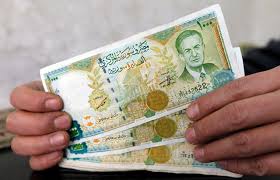
In the rebel-held district of Aleppo, some tradesmen and activists are calling for the adoption of the Turkish lira
Despite Syria’s civil war raging for nearly five years now, many areas seized by opposition forces have often continued to use the national currency: the Syrian pound. In the divided city of Aleppo, however, some traders are attempting to change this – promoting the adoption of the Turkish lira in the districts of the city held by various rebel factions.
According to the FT, those “advocating a currency switch say it is economically practical because Turkey has become the north’s main trading partner.”Aleppo, once the business capital of Syria, has since 2012 been at the heart Syria’s war, with districts being divvied up by the Syrian government and different rebel factions. Based in the north of the country near the Turkish border, “local markets are dominated by Turkish products or goods sent via Turkey,” writes the FT. Despite initially falling as the war started, Turkish exports in 2014 were worth $1.8bn, not far off the pre-war 2010 amount of $1.84bn.
The adoption of the lira is also hoped to bring economic stability. Since the start of the civil war in 2011, the Syrian pound has been unstable. At the conflicts outset, the currency was worth 47 to the US dollar, but now stands at 310 to the dollar. “Using Turkish currency will benefit local residents because it’s less volatile,” said Aleppo tradesman Rashid Tahvali, reports the Turkish-based Anadolu Agency.
Not all are in favour of the change, however. “The people are split for and against and the debate is causing us problems,” Fouad Hallaq, an activist from Aleppo city told the FT. Some fear that the lira will lead to the domination of rebel held northern areas by Turkey, with more nationalist-minded rebels seeing it as a plan hatched by the AKP and rebel factions funded by the Turkish state. Those opposed call the plan an “Ottoman occupation of the north”, according to Ahmed al-Ahmed, an Aleppo activist, speaking to the FT.
World finance

Leave a Reply
You must be logged in to post a comment.